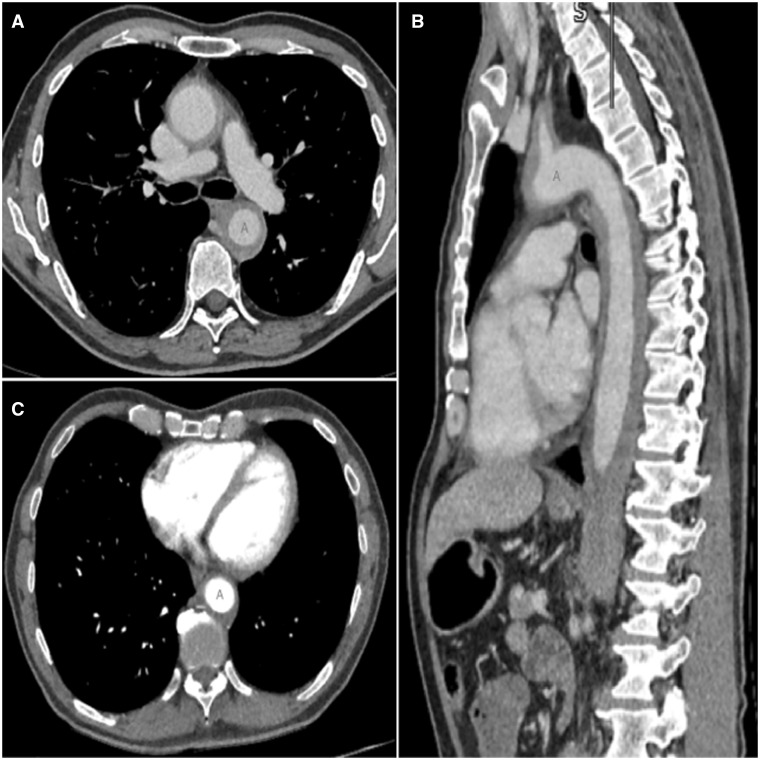A 71-year-old male developed symptoms of a dry cough, fever, diarrhoea, and dyspnoea on 15 March 2020. These resolved after 2 weeks, but an altered taste perception persisted. He later experienced extreme fatigue, poor appetite with 5 kg weight loss, and a sharp left-sided chest pain radiating to his scapula. Computed tomography (CT) thorax, abdomen, and pelvis on 15 May demonstrated a diffuse inflammatory aortitis from the subclavian arteries to the iliac bifurcation, without dissection or pseudoaneurysm formation (Panels A and B; Supplementary material online, Video 1). There was no associated rash, jaw claudication, or joint involvement. Examination revealed normal peripheral pulses without radio-radial delay, subclavian or carotid bruits, and non-tender and pulsatile temporal arteries. Blood profile demonstrated a microcytic anaemia with haemoglobin of 77 g/L, C-reactive protein of 185 mg/L, and interleukin-6 of 28 ng/L. Vasculitic autoantibodies were unremarkable, including a negative syphilis serology and immunoglobulin G (IgG) subclass 4. Transthoracic echocardiogram was normal, with no aortic regurgitation or root dilatation. Temporal artery ultrasound demonstrated clear vessels without inflammation. Nasopharygeal swab was negative for SARS-CoV-2 but positive IgG antibody serology proved recent infection. Prednisolone 40 mg was commenced, and surveillance bloods demonstrated resolution of the anaemia and inflammatory indices. The patient’s symptoms resolved, with return to baseline functioning 2 weeks later. Interval CT angiogram demonstrated partial resolution with a reduction in the circumferential aortitis (Panel C; Supplementary material online, Video 2). Whilst the vasculitic sequelae of SARS-CoV-2 have been well documented in the paediatric population, this is to our knowledge the first reported case of adult aortitis attributed to the COVID-19 pandemic.
Conflict of interest: The authors have submitted their declaration which can be found in the article Supplementary material online.
Supplementary material is available at European Heat Journal online
Supplementary Material
Associated Data
This section collects any data citations, data availability statements, or supplementary materials included in this article.



